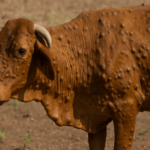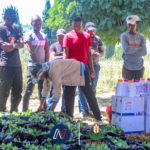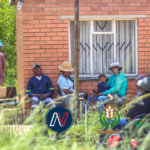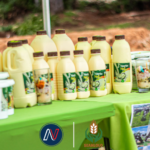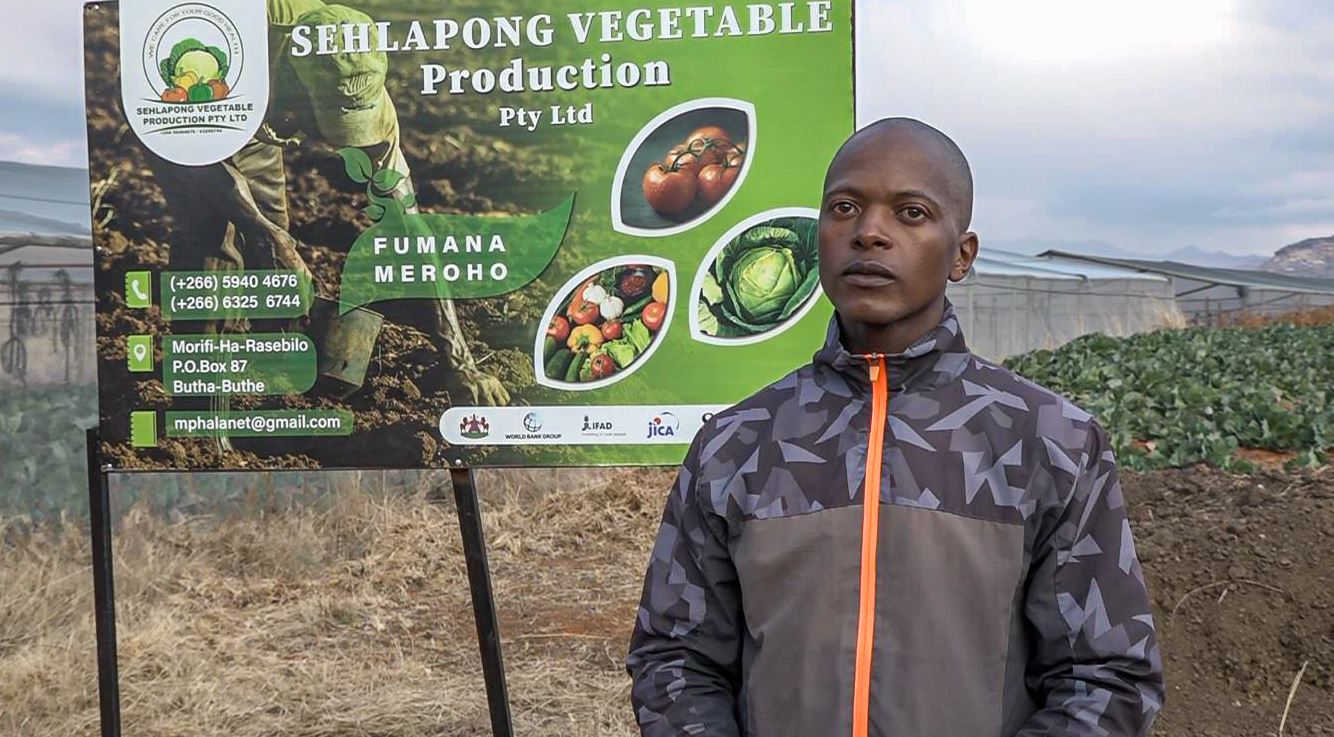By Seahlolo Reporter
In 2016, with just M20 in his pocket, and a new graduate with no clear hope of the white collar opportunity, Mphalane Tšilonyane decided to fight off the idle mind that unemployment often breeds, and bought a few seedlings and seeds of a variety of vegetables.
The gesture that began as a small attempt to stay busy has grown into Sehlapong Vegetable Production, one of Butha-Buthe’s most promising youth-led agribusinesses.
“I started with almost nothing — only twenty maloti and a strong will to work,”
“At that time, I had just completed my studies at the Lesotho Agricultural College, but jobs were scarce. I decided to use what I had, knowledge and passion,” Mphalane recounts.
Armed with little more than determination, Mphalane began cultivating tomatoes, green peppers, and rape on an open field.
“I used normal seeds, and not hybrids, that were not suitable to our harsh climate. My crops suffered from hailstorms, frosts, and heatwaves. Year after year, I watched my efforts get washed away. With the education knowledge, my efforts were met with harsh reality of failure,” he says.
Adding to his frustration, when yielded looked promising, was an issue of theft.
“Because I live far from the farm, thieves would harvest my crops before I could. It was heart-breaking because at this point on my journey, I had very little to show for my hard work.”
For several seasons, Sehlapong Vegetable Production survived in name only but remained a struggling enterprise sustained by stubborn faith rather than profit.
“I never stopped seeking help. Through the Ministry of Agriculture, Food Security and Nutrition, I stayed connected with extension officers who introduced me to a project that would later change his life, the Smallholder Agriculture Development Project II (SADP II).
“When I first learned about the SADP II, I didn’t know it could help farmers like me but after applying and being selected as a beneficiary, everything changed.”
Through the grant, Mphalane received a shade-net structure to protect his crops from extreme weathers, a borehole with a reliable water supply, a stand supporting three 5,000-litre tanks and a drip irrigation system.
“These facilities transformed my production completely,” he says proudly.
He adds, “The shade-net protects the crops from hail and frost, a problem that rendered my efforts useless when I began my journey, while the borehole and drip irrigation system allows me to control soil moisture even during heat waves. I now produce consistently and with better quality.”
Beyond infrastructure, SADP II introduced Mphalane to hybrid seeds that are more resilient to climate change effects and yield higher outputs.
“Before, I struggled with weak plants and low yields but with the hybrid seeds, my production improved drastically, both in quantity and quality,” he explains.
One of the most valuable aspects of SADP II, he says, was market exposure.
“SADP II facilitated market days where we could showcase our produce directly to buyers and that shortened the gap between producers and consumers. It reduced post-harvest losses and helped us build lasting trade relationships,” he beams.
The market days, he says also gave him confidence; “When I compared my vegetables with others, I realised that my produce stood out. Customers preferred my crops and that gave me the motivation to grow even bigger.”
With better yields came better profits.
“Sehlapong started generating enough money to reinvest. We managed to buy a vehicle for deliveries and input purchases, which improved logistics. We also fenced the farm to prevent theft,” he states.
The once-struggling Sehlapong Vegetable Production is now a stable agribusiness employing two permanent workers, in addition to his wife, who co-manages operations.
“Employment creation is one of the best things that came out of this journey. Now the farm sustains not only my family but also the families of my employees.”
Mphalane’s decision to pursue vegetable farming was not random. It was personal.
“I grew up in a family that farmed vegetables for consumption, so after college, I realised I could turn that childhood experience into a source of income. Vegetable production doesn’t require huge capital like livestock farming. With the right knowledge, it’s easy to start and expand gradually.”
He attributes his success to the combination of formal agricultural education, extension services and SADP II workshops.
“Each stage taught me something new, from disease control to financial management. Today, my farm rarely suffers from crop diseases because I apply preventive methods like fungicides and use resilient hybrid seeds as I have learned.”
Through SADP II’s training, Mphalane also learned about commodity groups, which are networks of farmers who produce the same crops for collective marketing.
“Being part of a commodity group has many benefits. We buy inputs in bulk at discounted prices, share knowledge and maintain production standards that the market requires.”
This collaborative approach helped him secure contracts with three major clients — supermarkets, schools, and street vendors, ensuring a steady market for his vegetables.
“Today, I no longer worry about where my produce will go. Everything I harvest is sold.”
Having overcome the harsh reality of youth unemployment, Mphalane is now mentoring five young farmers in his community.
“I know what it feels like to have a qualification but no job that is why I help other youth learn how to grow vegetables and start small businesses.”
He believes vegetable farming offers one of the fastest returns in agriculture.
“Cash crops like tomatoes and green peppers can start earning profit within months. You don’t need to wait years like in livestock production. That’s why I keep urging young people to take up farming, it’s practical and rewarding,” he says.
He also highlights that SADP II is youth-friendly, encourages innovation and entrepreneurship among young farmers.
“The project doesn’t just give you inputs, it gives you knowledge, confidence and exposure to the market,” he says.
Looking to the future, Mphalane dreams of expanding his farm with more shade-net structures to increase production and employ more young people.
“Right now, our focus is maintaining quality, however, soon I want to increase our quantity too. That means more hands on the farm, meaning more young people getting work.”
For Mphalane what started as an escape from unemployment has become a story of empowerment and economic freedom.
“Vegetable production gave me more than income. It gave me purpose. If we invest in knowledge and hard work, farming can rescue our youth from unemployment,” he says with a smile.
Sponsored by


